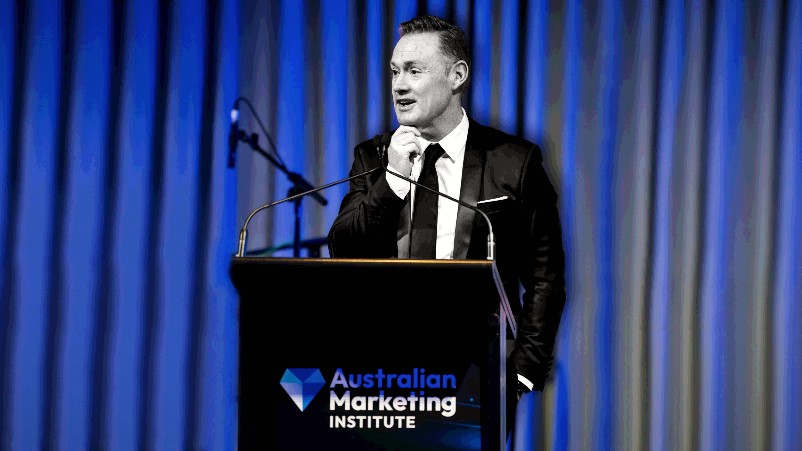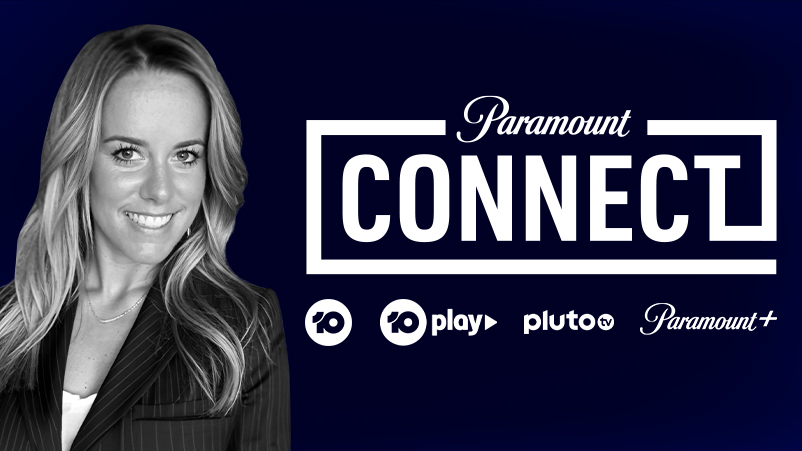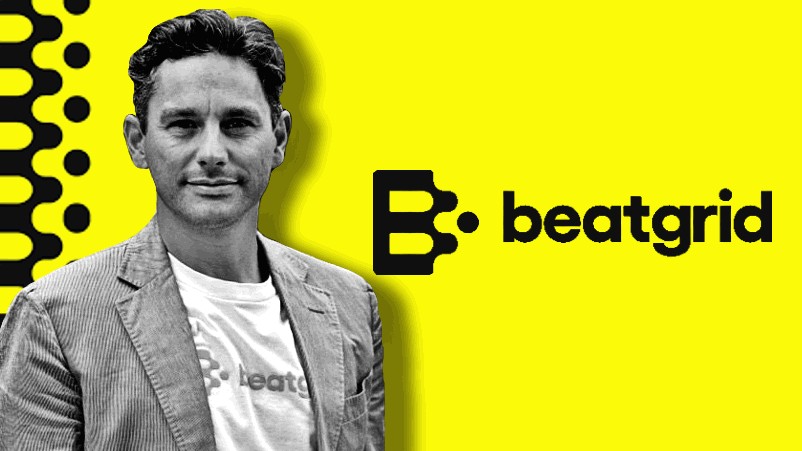Data paralysis, short-termism, lack of commerciality stopping marketers from making decisions, says Australian Marketing Institute CPM Award winner

Paul Everson, Paper + Spark
This year’s winner of the Australian Marketing Institute’s Certified Practising Marketer award, Paper + Spark’s Paul Everson, is in plenty of conversations right now, but reports a market afraid to commit to decisions as socio-economic uncertainty and short-termism persist. It’s not helping many marketers are either struggling to draw insights from data, or lack commercial nous to connect the dots to the business bottom line, he says – a big reason why skills development programs like Certified Practising Marketer are so critical to the industry. But with the core fundamentals of marketing as solid as ever – even with more channels and sophisticated terminology at our disposal – this experienced agency leader, marketing industry mentor and Uni lecturer is keen to see the industry embrace big M marketing with more confidence.
What you need to know:
- This year’s Australian Marketing Institute Certified Practising Marketer of the Year award winner, Paper + Spark’s Paul Everson, sees plenty of conversations going on right now, but a decided lack of decision making.
- He attributes this state of play to two major factors: Socioeconomic uncertainty fuelling short termism rather than more strategic and brand-led approaches to marketing; along with a gap in the data and commercial skills of marketing teams.
- As an emerging leader mentor for the AMI plus a university lecturer, Everson has seen the gap that persists between academic knowledge and practical application of marketing in the workplace. It’s made him a major advocate for industry skills development programs like the AMI’s CPM program bridging the gap between what have often becomes specialised and siloed skill sets such as performing marketing versus brand strategy.
I find marketers – I’m generalising here – don't have the commercial nous to be able to turn their efforts into value back to the business. They all talk about ROI, but a lot don't actually know what that means.
There’s conversations and proposals aplenty in our industry right now, but destabilising socio-economic forces have left marketers struggling to actually commit to decisions, according to Paper + Spark partner and chief growth officer, Paul Everson.
Speaking to Mi3 at the recent Australian Marketing Institute (AMI) Marketing Excellence Gala Awards following his win as Certified Practising Marketer of the Year, the experienced agency leader said the market is all talking ROI and commercial delivery to the bottom line. Yet many simply don’t know how to deliver it. Instead, short termism has all the gravity pull and is rife.
“The smart marketers fundamentally understand brand, but they're under huge amounts of pressure to deliver the numbers, and the way to get there is through short termism,” Everson said.
Sluggish retail and ongoing tactics like discounting and promotions to keep consumers buying have also led to what Everson described as a stagnancy in market to take bolder steps forward.
“Everyone's just waiting and seeing. We're busy, and having lots of conversations and putting lots of proposals on the table. But there’s so much at play,” he said. “If you look at the macro environment, and what's happening politically, there are huge unknowns as to how that's all going to fall out. That all has a long-term effect through everything, including marketing. I think when you look at it through that broader background, it makes sense why they're just pausing, trying to get as much as they can done. But it feels like we're back into a covid world in terms of not making decisions, just waiting for the gates to open.
“Everything's equalising itself, but there is a lot of pausing, treading water, no decision making. As a result, there’s just nothing moving.”
It doesn’t help marketers are struggling with data-driven decision making and connection investment through to the bottom line, Everson continued.
“They're drowning in data, and don't quite know how to manage that. It's a specialised skill to be able to do economic modelling and what that looks like. The big companies have those resources available. However, we deal with big and medium-sized companies, and those medium-sized companies really struggle here, which is where we come in to help,” he said.
“The challenge commonly is you get access to data but all the data is in islands. It's everywhere, it's not in a central system, which is really hard to pick out of. Then there’s the challenge of turning that into human insight, because the data will only tell you so much. They're the two biggest things on clients’ minds at the moment.”
It feels like we're back into a Covid world in terms of not making decisions, just waiting for the gates to open. Everything's equalising itself, but there is a lot of pausing, treading water, no decision making. As a result, there’s just nothing moving.
Building marketing’s skills base
As well as the day job as an agency leader, Everson is a mentor under the AMI’s Emerging Leaders Program and teaches brand and creative at the University of Technology Sydney. Judges awarded him the Certified Practising Marketer of the Year award in recognition of his sense of responsibility, thorough knowledge sharing through mentoring in the industry, and passion for continuous learning coupled with driving serious impact at the agency.
Everson agreed to a persistent disconnect between academic learning and building robust marketing principles and practices on the job – something which used to be more plentiful through internships on both agency and client side (think Procter & Gamble or Unilever). Which is why he’s a proponent of the AMI’s Certified Practising Marketer (CPM) as a way to try and foster continuous learning that bridges this gap and stops marketers pigeonholing themselves in their careers.
Everson’s own career trajectory saw him at several well-known Australian agencies, including Young and Rubicam, Saatchi & Saatchi, George Patterson, Leo Burnett and J Walter Thompson. Over the years, he’s worked both here and overseas, holding senior leadership positions while also providing business support as a non-executive director and board member for the likes of MissingSchool and the Kindness Factory.
“I always had an interest in marketing and a fascination with brands and storytelling. I thought the industry looked interesting, and I was always somewhat creative too. Those two worlds collided, which is now what we're calling the science and art of marketing,” Everson said. His first job at Young and Rubicam was in the production team in direct mail, doing mock-ups for kitty bags.
Prior to joining Paper + Park, Everson was managing director of J Walter Thompson. Everson has now had five years at Paper + Spark, a strategic marketing and communications agency with clients including Budget Direct, Herbalife, Endeavour Energy, Macquarie Bank, Johnson & Johnson and Ventia.
“Marketing at its fundamental core has not changed: If you look at the Ehrenberg-Bass’ of the world, the Les Binets, all of that marketing science is something we knew; we just didn't call it what it's called today, and we have a lot more sophistication in terms,” Everson commented.
“I spent a lot of my time at P&G, understanding the importance of brand and what brand looks like. What I teach my clients now, or consult to them on, is those fundamentals. But to your point, what has changed is we now have a plethora of primarily channels in which to amplify those messages and to new audiences who want different things from advertising in its so-called way.”
Where Everson is most keen to see skills develop is around commercial nous and better articulating marketing’s through-line to business outcomes.
“I find marketers – I’m generalising here – don't have the commercial nous to be able to turn their efforts into value back to the business,” Everson said. “They all talk about ROI, but a lot don't actually know what that means. You need to prove that and have those commercial conversations. Because otherwise marketing just seems a cost centre.”
Compounding the problem if you subscribe to Mark Ritson’s theory, is 50 per cent of practising marketers lacking formal training. Growing numbers have also been coming through performance marketing ranks and again, haven’t had the luxury of a brand education at P&G. It’s no wonder all the data and digital had seen us falling into the trap of short termism, Everson agreed.
“It feels like we're trying to get to a course correction, but I'm just not sure if we've got far enough yet,” he said. “I think that's where AMI and universities need to get back to those core fundamentals. Because what you're talking about are specialists who come in and who can performance manage an entire campaign, but who don't have the strategic nous to really understand the four Ps, what they are, and tie back to those basic fundamentals.
“We've just got to be smarter about the way we do. I embrace the new tools, platforms and data existing to us, because I think it makes for stronger campaigns and makes us stronger marketers. We have more tools at our disposal than ever, which can seem overwhelming sometimes, and when you look at the CPM, there is a lot in there. But when you start to peel that all back, and even when I teach at UTS, there are core fundamentals that have not changed in how I connect with a consumer to make action.”

